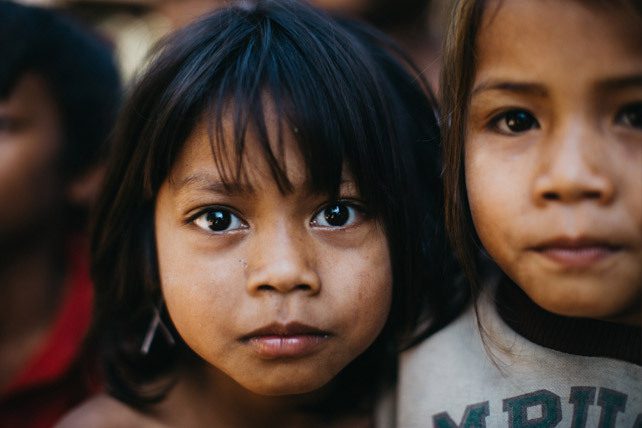At least 5.2 million children across the world have lost a parent or caregiver for a COVID-19-associated reason, according to a new report from The Lancet. The authors, who were updating a previous study, estimate that the number of these “COVID orphans” was up to 6.7 million by Jan. 15, 2022.
“We found a surge in COVID-19-associated orphanhood and caregiver death over our new 6-month study period (May 1–Oct 31, 2021), with the total number of children affected nearly double that observed in the first 14 months (March 1, 2020–April 30, 2021),” write the authors of the report, which was published Feb. 24 in The Lancet Child & Adolescent Health. “By Oct 31, 2021, 5.0 million COVID-19 deaths had occurred, and roughly 5.2 million children had lost a parent or caregiver due to COVID-19-associated death.”
The authors call their findings “disturbing” and say, “For children, the potential consequences of parent or caregiver loss are devastating and enduring, including institutionalisation, abuse, mental health problems, adolescent pregnancy, and chronic and infectious diseases…As rates of COVID-19-associated orphanhood surge, an evidence-based emergency response is becoming increasingly urgent.”
COVID Orphans Increase by 90% in 6 months
The new report from The Lancet updates a previous one the journal published July 20, 2021, that looked at data occurring between March 1, 2020, and April 30, 2021. The new report added six months to the earlier time frame. Data gathered from May 1, 2021, to Oct. 31, 2021, found a 90 percent increase in the number of children orphaned by COVID-19. The highest rates of orphanhood occurred in Peru and South Africa, and the authors noted that they found “racial and ethnic disparities” among COVID orphans in the U.S.
Key findings from the study include that there is a disproportionate loss of paternal caregivers compared to maternal caregivers among COVID orphans. “Three of every four children affected by orphanhood lost their fathers,” write the authors. “Paternal orphanhood rates exceeded maternal ones in all countries, and were highest in Peru, South Africa, India, and Mexico.”
Another key takeaway from the report, say the authors, is “the disproportionate orphanhood among young adolescents.” The study categorized children in three groups: 0-4, 5-9, and 10-17 years of age. Children in the latter age group were far more affected by the loss of a parent or primary caregiver, with over 2.1 million between the ages of 10 and 17 impacted. “We also found the age-related composition of orphanhood changed little between the 6-month study period and our original study period (appendix p 26),” say the authors, “despite proliferation of the delta variant, which could potentially increase risks of orphanhood among younger children.”
The authors observed that the age of the children impacted affects what will benefit them:
Children of all ages experience grief and might also experience inadequate care, altered mood of the surviving parent or caregiver, food insecurity, marginal housing, and family disintegration, but associated effects, needs, and vulnerabilities vary by age. Younger bereaved children need immediate full-time nurturing and ongoing support for early childhood development, and the quality of care affects subsequent development, health, and mental health. Adolescents face post-orphanhood risks (varying across contexts) including sexual violence, exploitation,20 HIV infection,21 suicide, child labour, adolescent pregnancy, separation from family, household poverty, and leaving school to care for younger siblings.

